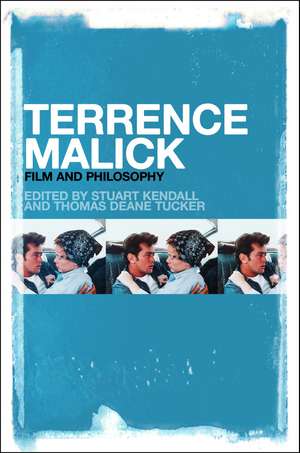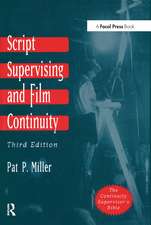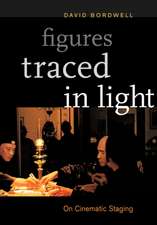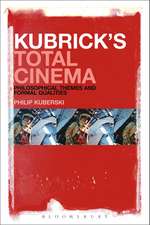Terrence Malick: Film and Philosophy
Editat de Thomas Deane Tucker, Stuart Kendallen Limba Engleză Hardback – 13 iul 2011
| Toate formatele și edițiile | Preț | Express |
|---|---|---|
| Paperback (1) | 256.77 lei 43-57 zile | |
| Bloomsbury Publishing – 12 mar 2014 | 256.77 lei 43-57 zile | |
| Hardback (1) | 889.88 lei 43-57 zile | |
| Bloomsbury Publishing – 13 iul 2011 | 889.88 lei 43-57 zile |
Preț: 889.88 lei
Preț vechi: 1282.03 lei
-31% Nou
Puncte Express: 1335
Preț estimativ în valută:
170.30€ • 177.14$ • 140.59£
170.30€ • 177.14$ • 140.59£
Carte tipărită la comandă
Livrare economică 14-28 aprilie
Preluare comenzi: 021 569.72.76
Specificații
ISBN-13: 9781441150035
ISBN-10: 144115003X
Pagini: 240
Dimensiuni: 155 x 231 x 23 mm
Greutate: 0.48 kg
Editura: Bloomsbury Publishing
Colecția Continuum
Locul publicării:New York, United States
ISBN-10: 144115003X
Pagini: 240
Dimensiuni: 155 x 231 x 23 mm
Greutate: 0.48 kg
Editura: Bloomsbury Publishing
Colecția Continuum
Locul publicării:New York, United States
Caracteristici
Terrence Malick is arguably the most understudied contemporary major American filmmaker.
Notă biografică
Thomas Deane Tucker is Professor of Humanities at Chadron State College. He is the author of Derridada: Duchamp as Readymade Deconstruction.Stuart Kendall teaches Critical Studies at the California College of the Arts. He is the author of Georges Bataille and The Ends of Art and Design.
Cuprins
Introduction Stuart Kendall and Thomas Deane Tucker Voicing Meaning: On Terrence Malick's CharactersSteven Rybin Terrence Malick's Histories of ViolenceJohn Bleasdale Rührender Achtung: Terrence Malick's Cinematic Neo-ModernityThomas Wall Worlding the West: An Ontopology of BadlandsThomas Deane Tucker Fields of Vision: Human Presence in the Plain Landscape of Badlands and Days of HeavenMatthew Evertson The Belvedere and the Bunkhouse: space and place in Days of Heaven Ian Rijsdijk The Tragic Indiscernibility of Days of HeavenStuart Kendall Darkness from Light: Dialectics and The Thin Red Line Russell Manning Song of the Earth: Cinematic Romanticism in Malick's The New WorldRobert Sinnerbrink Whereof One Cannot Speak: Terrence Malick's The New WorldElizabeth Walden Bibliography Notes on Contributors Index
Recenzii
[A] robust invocation and endorsement of the relation between filmmaking and philosophy . The book is well written and well informed. Summing Up: Recommended. Upper-division undergraduates through faculty.
The volume succeeds as an example of multitudinous approach to the philosophy of film, and broadly speaks to readers interested in the relationship between cinema and philosophy as well as the films of Terrence Malick. [...] [It] presents original investigation of a filmmaker whose work has clearly intrigued, yet often also baffled audiences.
Terrence Malick: Film and Philosophy provides a wonderfully stimulating range of approaches to Malick's films, unlocking the philosophical depths of the most thoughtful auteur of recent decades. The collection engages Malick's cinematic oeuvre with the works of Heidegger and Cavell as might be expected, but also provocatively deploys Deleuze, Hegel, Marx, Schiller, Derrida and Merleau-Ponty alongside esteemed film theorists like Sobchack and Branigan. As such, this book is at the cutting edge of recent developments in film-philosophy, and is essential reading for anyone interested in the subject. It is also a superb exploration of Malick's most important films as writer and director, from Badlands to The New World. --Dr David Martin-Jones, Senior Lecturer in Film Studies, University of St Andrews, UK
The volume succeeds as an example of multitudinous approach to the philosophy of film, and broadly speaks to readers interested in the relationship between cinema and philosophy as well as the films of Terrence Malick. [...] [It] presents original investigation of a filmmaker whose work has clearly intrigued, yet often also baffled audiences.
Terrence Malick: Film and Philosophy provides a wonderfully stimulating range of approaches to Malick's films, unlocking the philosophical depths of the most thoughtful auteur of recent decades. The collection engages Malick's cinematic oeuvre with the works of Heidegger and Cavell as might be expected, but also provocatively deploys Deleuze, Hegel, Marx, Schiller, Derrida and Merleau-Ponty alongside esteemed film theorists like Sobchack and Branigan. As such, this book is at the cutting edge of recent developments in film-philosophy, and is essential reading for anyone interested in the subject. It is also a superb exploration of Malick's most important films as writer and director, from Badlands to The New World. --Dr David Martin-Jones, Senior Lecturer in Film Studies, University of St Andrews, UK

















